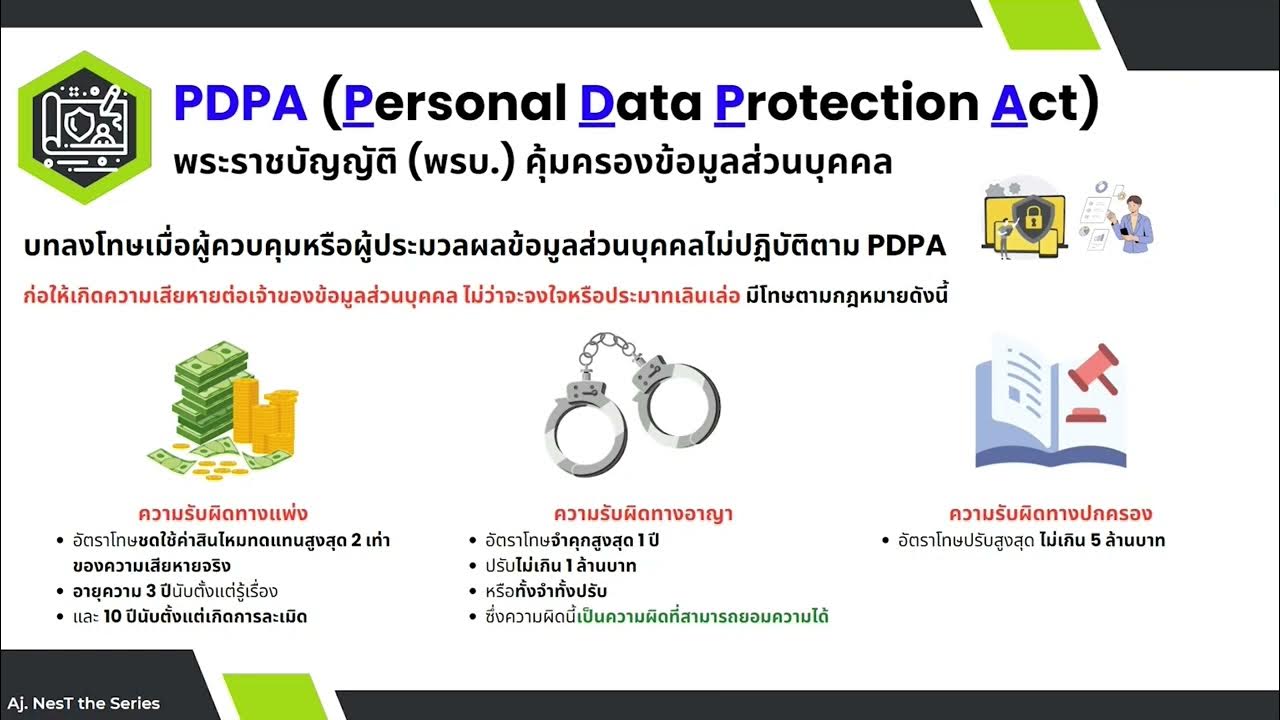Penalidades e Medidas Administrativas - Você conhece? Sabe diferenciá-las?
Summary
TLDRThe video script discusses various traffic penalties in Brazil, distinguishing between penalties and administrative measures. It explains that penalties like fines and license suspensions are applied by traffic authorities, while administrative measures such as vehicle confiscation can be implemented by traffic agents. The script provides tips for identifying administrative measures by the initial letters 'R' or 'T' and emphasizes the importance of understanding these distinctions for traffic law exams. It also covers the calculation of fines based on the severity of the violation and the application of multipliers in certain cases.
Takeaways
- 📝 Infringements can lead to penalties, which are divided into penalties and administrative measures.
- 🔵 The blue board represents penalties, while the green board represents administrative measures in the script's visual aid.
- ⚠️ Penalties include written warnings, fines, suspension of driving rights, vehicle seizure, cancellation of driving or provisional licenses, compulsory refresher courses, and mandatory alcohol tests.
- 🚫 Administrative measures involve vehicle reassessment, vehicle removal, license and vehicle documentation collection, animal collection, and overload transshipment.
- 📚 The script emphasizes distinguishing between penalties and administrative measures for exam purposes and practical application by traffic authorities.
- 📖 A mnemonic is provided to identify administrative measures: those starting with 'R' or 'T' are administrative measures.
- 🚦 The script explains that written warnings serve as an educational punishment and can replace a fine under certain conditions.
- 💰 Fines are applied based on the nature of the infraction and have corresponding points and values, with a discount for timely payment.
- 🔢 A method to calculate the value of fines using the former UFIR (fiscal reference unit) value is shared as a helpful tip.
- 🚗 Specific infractions that have increased penalties (multiplied by 3, 5, or 10) are detailed, including driving under the influence of alcohol or drugs.
- ⏰ The importance of understanding the calculation of speed limits and the corresponding severity of the infraction is highlighted, with examples provided.
Q & A
What are the two main types of penalties mentioned in the script?
-The two main types of penalties mentioned in the script are 'penalidades' (fines) and 'medidas administrativas' (administrative measures).
What is the difference between 'advertência por escrito' and a fine?
-An 'advertência por escrito' (written warning) is a punitive measure with an educational effect, whereas a fine is a monetary penalty applied according to the nature of the infraction.
Under what conditions can a fine be converted into a written warning?
-A fine can be converted into a written warning if the infraction committed is minor or medium and if the offender has no record of other infractions in the last 12 months.
What is the significance of the tip provided about starting with the letters 'R' or 'T' to identify administrative measures?
-The tip is significant because it helps to quickly identify administrative measures during an exam or in practice, as all administrative measures start with the letter 'R' or 'T'.
What is the purpose of the 5% allocation from the fines collected to the National Fund for Traffic Safety and Education?
-The 5% allocation is intended for educational campaigns, advertisements, and publicities aimed at educating in the area of traffic, thereby preventing the occurrence of infractions.
What are the three multipliers that can be applied to the fines for aggravated infractions?
-The three multipliers that can be applied to the fines are 3, 5, and 10, depending on the severity and specific nature of the infraction.
What is the meaning of the asterisk next to 'dirigir sob influência de álcool ou substância psicoativa' in the script?
-The asterisk indicates a note that in case of recidivism within a year, the fine is doubled, not multiplied by 10 as might be mistakenly thought.
How can one calculate the percentage of speed exceeding the limit?
-To calculate the percentage of speed exceeding the limit, one can take the speed limit, add a certain percentage of it to the limit, and compare the result with the actual speed driven.
What is the penalty for exceeding the speed limit by more than 50%?
-Exceeding the speed limit by more than 50% is considered a very serious infraction, which carries a three times multiplier on the fine and results in the suspension of the right to drive.
How does the script differentiate between minor, medium, serious, and very serious infractions?
-The script differentiates between the levels of infractions based on the nature of the infraction and assigns a corresponding point value and fine amount, with very serious infractions receiving the highest penalty.
What is the advantage of paying the fine before the due date?
-Paying the fine before the due date allows for a 20% discount on the fine amount, which is a benefit granted by the traffic authority.
Outlines

This section is available to paid users only. Please upgrade to access this part.
Upgrade NowMindmap

This section is available to paid users only. Please upgrade to access this part.
Upgrade NowKeywords

This section is available to paid users only. Please upgrade to access this part.
Upgrade NowHighlights

This section is available to paid users only. Please upgrade to access this part.
Upgrade NowTranscripts

This section is available to paid users only. Please upgrade to access this part.
Upgrade NowBrowse More Related Video

Lei Nº 9.503/97 - Dos Crimes de Trânsito - Art 291 ao 301.

Auto de Infração; Autoridade de Trânsito; Processo Administrativo Recursos Prazos Multa

СТРОКИ ДАВНОСТІ ЯК ЗАХИСТ ВІД ШТРАФІВ ТЦК. Для ВСІХ, хто дані НЕ УТОЧНИВ.

ART. 43, CP COMENTADO: PENAS RESTRITIVAS DE DIREITOS | Entenda de uma vez por todas

Crimes de Trânsito; Embriaguez; Multa Reparatória

คอร์สเรียน PDPA พรบ.คุ้มครองข้อมูลส่วนบุคคล EP.5 บทลงโทษถ้าละเมิดสิทธิของ PDPA
5.0 / 5 (0 votes)